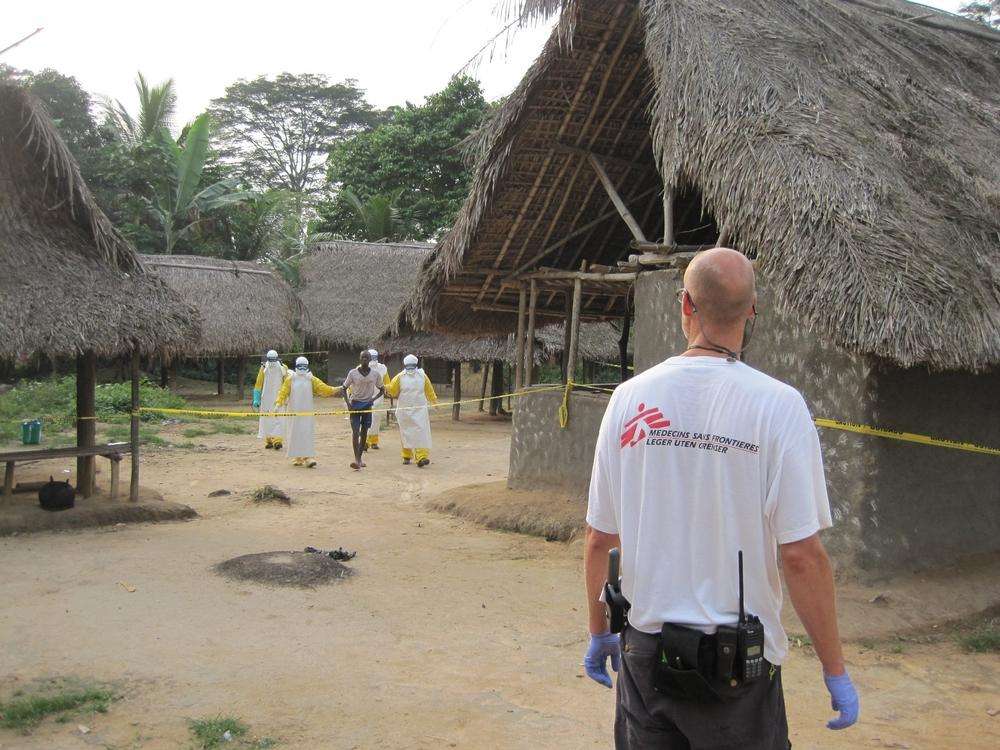While there are now many Ebola medical facilities up and running across West Africa, Doctors Without Borders/Médecins sans Frontières (MSF) is adapting its response with mobile and reactive teams to address new chains of contamination.
Just a few weeks ago, many MSF Ebola Management Centers (EMCs) in West Africa were reaching their limits. Since then, the number of patients has steadily declined. During the first week of February, only 10 new confirmed cases were admitted within the 8 EMCs managed by MSF in the region, including none in Liberia.
However, this sudden decline in cases raises important questions. "Our centers in Guinea were empty in late May last year," says Claudia Evers, MSF emergency coordinator in Guinea. "[But] all it took to revive the epidemic was a single case. It is crucial to actively search for suspected cases, especially in crowded urban areas and the most remote places, before new transmission lines are created."
The key is to rapidly trace and monitor those who have been in close contact with infected patients before they too become ill and spread the virus. In some areas communities remain reluctant to seek care for Ebola. People are still dying of the disease outside health care systems, some funerals are still conducted in secret, and new cases continue to be detected in areas that have up to now been spared.
MSF’s outreach strategy considers every new case as a full-fledged epidemic and simultaneously implements all the various aspects of the response: local capacity building, active case finding, public awareness, infection control in households and medical facilities, rapid transfer of suspected cases to Ebola management centers, and epidemiological surveillance.
"Fewer Ebola cases and the arrival of additional actors offer the opportunity to identify and tackle new outbreaks earlier," says Maria Teresa Cacciapuoti, MSF head of mission in Liberia.
In Guinea, MSF has begun surveying the prefecture of Faranah after having received a number of cases from there at its Ebola center in Guékédou. Other investigations are ongoing in the prefecture of Kissidougou.
In Liberia, MSF rapid response teams have been deployed throughout Grand Cape Mount County after successfully completing an intervention in Grand Bassa County. An elderly woman brought the virus from Monrovia to her remote village in Quewein, where she passed away shortly after her arrival. "When we arrived, there were already eight infected patients and two dead bodies" says Rob D'Hondt, MSF water and sanitation expert. "It was simply impossible to handle for a village of just 400 inhabitants.”
In early February, one man returned from Monrovia to Margibi County, developed Ebola and passed away. Several people that were exposed to the virus while taking care of him were quickly identified. “It is sadly possible that some of them will become ill in the coming days," says Cacciapuoti. "Now they must be monitored and supported. We have to be flexible and constantly adapt to this unpredictable epidemic. We’ve been running behind Ebola since the beginning; today it finally seems possible to catch up. This is definitely not the time to rest.”





